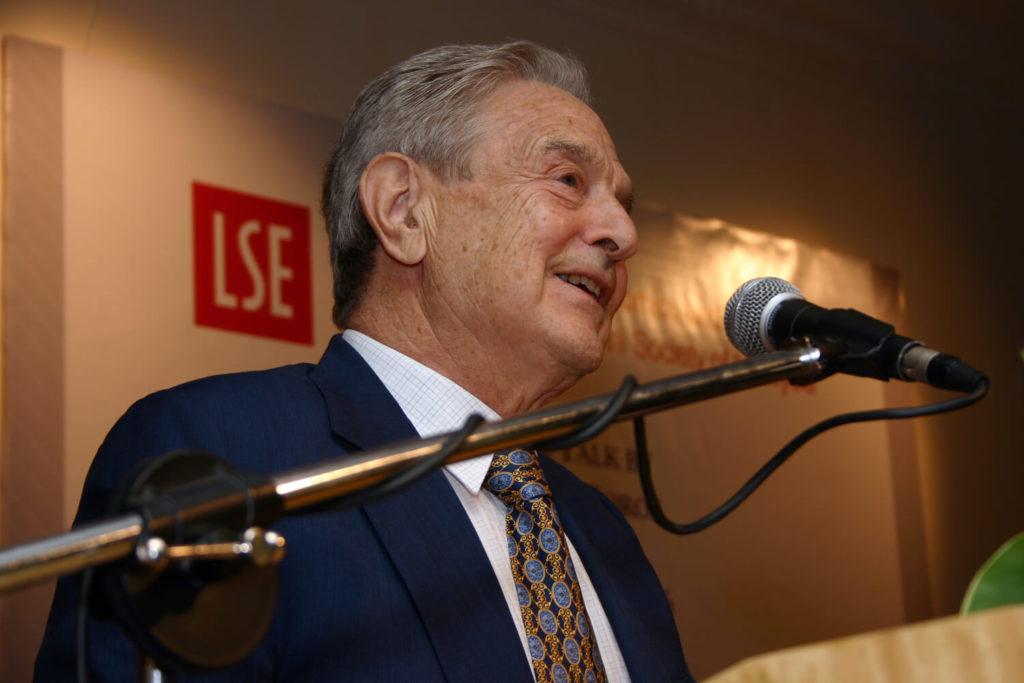
As Ethereum Leads the Crypto Markets, Dogecoin Receives a New Fee Proposal
Bolstered by the upcoming London hard fork, Ethereum led the cryptocurrency markets last week with a break back above $2,000. Dogecoin received a new fee proposal and George Soros’ billionaire investment fund dips a toe into the world of cryptocurrencies.
- Ethereum spurred on by London hard fork upgrade
- New fee proposal for Dogecoin
- George Soros’ investment fund reportedly trading Bitcoin products
- 130 countries back global minimum tax on corporations
- Big-ticket reports to watch out for this week
Ether reclaims $2,000 as London hard fork approaches
There were promising movements from Ether (ETH) last week with the coin outperforming the majority of the crypto market. Prices managed to recover back above the psychological level of $2,000, reaching a mid-week high of nearly $2,300.
Much of the bullish price movement is believed to be attributed to the upcoming London hard fork, which is now scheduled to be implemented in July. The London hard fork has been the name given to the Ethereum Improvement Proposal (EIP) 1559. The upgrade is set to tackle high gas fees that have plagued the blockchain at times of congestion.
The current system allows users to enter high gas fees to ensure transactions are entered within the next block of the blockchain. This greatly increases gas fees at times of congestion as users outbid each other. The EIP is set to introduce a flat base fee that will be the same for all transactions in a block. The base fee will still vary depending on network congestion but users will no longer compete against each other. This base fee can also be capped by a user and is going to be burned rather than rewarded to miners. Miners will still receive the block reward, plus any tips.
The EIP has been implemented on several Ethereum testnets to check the proposal will work correctly on the mainnet. Websites that have tracked these tests state that during some examples more ETH is burned in comparison to new ETH entering circulation. The burning of base fees has led many to believe it could lead to deflationary effects for ETH and result in a ‘hodl’ mentality for investors.
As the coin moves towards the London hard fork, it is important not to forget that the proposal is part of a much larger Ethereum 2.0 upgrade. Ethereum 2.0 is the blockchain’s update from a Proof-of-Work consensus mechanism to Proof-of-Stake. Proof-of-Stake will enable much faster transaction speeds, higher throughput, and will reduce energy consumption. The complex change has taken developers years to process but is crucial to keep Ethereum competitive. After launching the Proof-of-Stake network in December 2020, holders of ETH were encouraged to stake assets within the new network. Just over 500,000 coins were staked. Last week, it was announced that the number had risen nearly 12x with the amount of staked Ether now approaching 6 million.
Dogecoin reforms fees
At the beginning of last week, the meme-based cryptocurrency Dogecoin, which has experienced significant price increases throughout 2021, was met with a fee change proposal.
A Dogecoin developer, Patrick Lodder, submitted the proposal on the Dogecoin GitHub forum. The new policy suggests “reducing average fees 100x for standard transactions on the Dogecoin chain, splitting full control over all aspects of fees between miners and node operators, relying less on core development, and bringing back a functional (small) free transaction space that incentivizes keeping the network healthy”. The new measures would be uploaded to the network over multiple software releases.
One of the most significant impacts of the new proposal will be the reduction of transaction fees by 100x. Transaction fees on the Dogecoin chain have increased significantly due to the increased usage of the coin over the last six months, which core developers wish to combat.
The proposal caught the eye of Dogecoin-fan and CEO of Tesla, Elon Musk. After the announcement of the proposal, the entrepreneur commented on Twitter stating that it was “important to support” the new update. The price of Dogecoin jumped by 8% on the back of the support.
The entrepreneur has previously commented on improving Dogecoin and has openly encouraged the submission of ideas on the GitHub and Dogecoin Reddit forums. Tweeting in May he said “Ideally, Doge should speed up block time 10X, increase block size 10X, and drop fees 100X. Then it wins hands down.”
The new fee proposal can be found here. The proposal is an interesting development in what has been for a long time, a redundant cryptocurrency.
George Soros’ fund trading Bitcoin products, according to report
It was disclosed on Wednesday last week that the world-renowned investor George Soros’s investment fund is now trading Bitcoin-based products. Although not known whether the move was approved by George directly, the move was approved by the company’s Chief Investment Officer, Dawn Fitzpatrick. The claims have come from undisclosed sources and were published on news site thestreet.com.

Dawn Fitzpatrick, who has previously shown support of cryptocurrencies earlier this year, has supposedly given the green light on bitcoin investments, with other digital assets currently being researched. The support from the fund is surprising given George Soros’ feelings towards cryptocurrencies back in 2018. In a 2018 interview, George told reporters “Bitcoin is not a currency. A currency is supposed to be a stable store of value. And a currency that fluctuates twenty-five percent in a day can’t be used, for instance, to pay wages because wages could drop twenty-five percent in a day. So, it’s a speculation based on a misunderstanding.”
The investment fund joins a long line of investment funds that have already become involved in the cryptocurrency space over the last six months. It is not yet clear whether George’s stance on Bitcoin and cryptocurrencies has changed, but it does seem to suggest that the investment fund is looking at how cryptocurrencies can be incorporated into the company’s billion-dollar portfolio.
Global tax reform backed by 130 countries
The US Treasury Secretary, Janet Yellen told reporters on Thursday last week that 130 countries had agreed to the global minimum tax (GMT) on corporations spread across the world.
The move aims to tackle corporations that set up bases within low-tax jurisdictions, such as Ireland and the Cayman Islands. The Treasury Secretary commented during the week. “For decades, the United States has participated in a self-defeating international tax competition, lowering our corporate tax rates only to watch other nations lower theirs in response. The result was a global race to the bottom: Who could lower their corporate rate further and faster? No nation has won this race.”
The agreement from 130 countries represents 90 percent of global gross domestic product (GDP). Yellen interprets this as the race to the bottom coming to an end.
The Organization for Economic Cooperation and Development submitted a blueprint proposal for measures in the fall of last year. Although the announcement last week showed strong unity amongst countries to push the global tax reform through, it did not mention at what rate the tax rate the GMT would be set. Previously President Biden’s administration had pushed for 15%.
Big-ticket reports to watch out for this week:
Monday – Australia Retail Sales
Tuesday – Australia Interest Rate Decision, Euro Retail Sales (YoY), US ISM Services PMI
Wednesday – Canada Ivey Purchasing Manager’s Index, US FOMC Minutes
Thursday – Japan Current Account n.s.a, Reserve Bank of Australia Governor Speech, US Initial Jobless Claims
Friday – China CPI & PPI, Canada Unemployment Rate
To stay up to date on all things crypto, like Xcoins on Facebook, follow us on Twitter and LinkedIn and sign up at the bottom of the page to subscribe.

